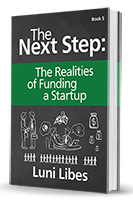One two three… wait two three…
You’ve found a few Angels or perhaps a seed venture capital fund. You’ve passed through their due diligence process and answered all of their outstanding questions. You’ve negotiated the terms of the deal, have verbal commitments, and are ready to “close” the funding.
Legalities
Taking money from investors, whether in the form of debt, convertible debt, equity, or revenue-based financing, requires a series of legal contracts and (in the U.S.) following a large collection of regulations. This is one moment where you need to hire a lawyer.
For debt and convertible debt, expect to spend a few thousand dollars getting everything in order. For equity, it may take many thousands of dollars, if not tens of thousands of dollars, in legal fees. Many experienced startup lawyers will defer these fees until the funding is finalized, as long as they believe that funding will arrive.
To minimize these fees, use the agreement templates for debt and equity posted online. 500 Startups, Series Seed, multiple Angel groups, and multiple seed VC funds have posted these templates. Talk to your lawyer about which he/she has used before and which he/she recommends for your company.
Urgency
The next thing to know is that these final steps can take a few months. This comes down to the fact that you have an urgent need for funding, but the investors have no similar urgency.
Professional investors can move more quickly, as they spend their days focused on investing, but at the same time often have busy schedules attending board meetings of existing investments, meeting with their partners to discuss other deals, and in general dealing with urgent issues that arise across their portfolio of investments.
Angel investors are notoriously slower. Their first priority is not investing, and thus other events in their life take priority, leaving you waiting days or weeks for the next step of the process to be completed. It is not uncommon for an Angel to give you a verbal commitment for an investment but then disappear for a few months.
The one step you can take to increase the urgency of your deal is to create a “closing date,” stating a day when the legal documents will be signed and the funds transferred to your account. If your deal is “oversubscribed,” with more commitments by investors than you plan to raise, then this can work quite well. However, if you have exactly the amount of interest you need, then a close date doesn’t always happen as planned.
Creating an urgency to close is another reason why convertible notes are so popular today. That form of investment allows you to do a “rolling close,” closing investors as soon as they are willing to sign the documents. Some convertible notes include a bigger discount for the first few investors, creating an incentive to get those investors to close sooner than later.
Last Money
However, more often than not, investors commit to the “last money” in the round, i.e., they promise to participate in the round as soon as you find enough investors for the remaining funding.
For example, if you are raising $200,000 and an investor commits $50,000, he may tell you he’ll not provide the funding until the other $150,000 is committed. When you then find the next investor for $50,000, she will expect you to find the final $100,000. And so on until the full $200,000 is committed.
If your investors are following that pattern, then, as soon as you have the final investor verbally committed, set a date to close the deal with all of them.













